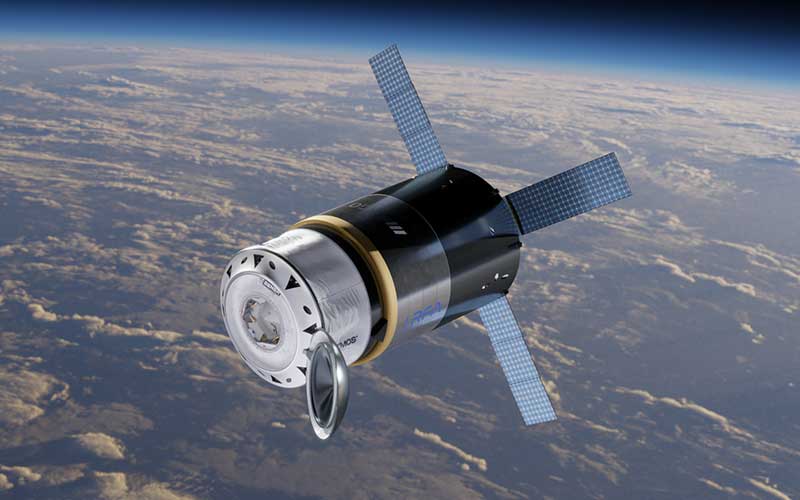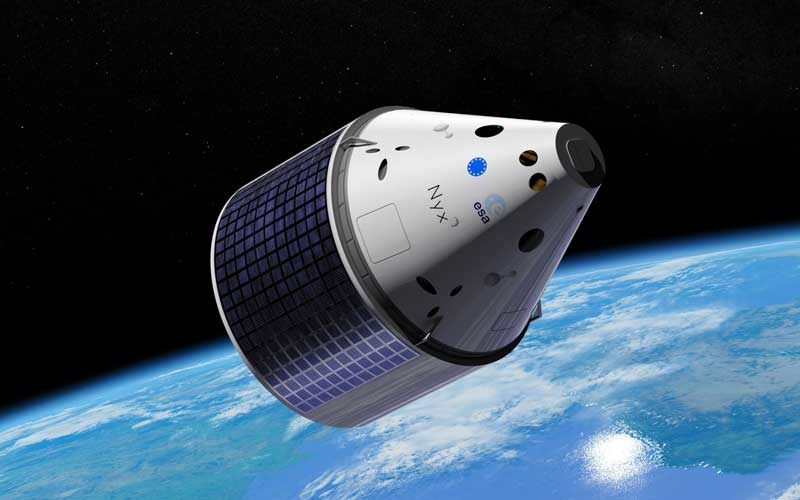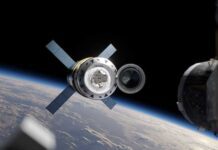
A consortium led by German launch startup Rocket Factory Augsburg has unveiled its Argo space station resupply vehicle. The consortium has submitted the vehicle for consideration to the European Space Agency’s Commercial Cargo Transportation Initiative (CCTI).
ESA launched CCTI in May with the aim of encouraging European industry to develop a space cargo transportation system that could service both the International Space Station (ISS) and future commercial low Earth orbit destinations.
RFA has submitted its Argo vehicle for consideration. The vehicle is designed to transport payloads of up to 3.4 tonnes and will feature 13 cubic metres of pressurized volume. While RFA plans to launch the spacecraft aboard one of its own rockets, it will be launch vehicle agnostic, allowing it to be launched with any rocket with sufficient payload capacity.
Candidates submitting CCTI bids will be working towards a demonstration mission that will need to be launched by 2028. Candidate vehicles will be required to deliver a minimum of 2 tonnes of cargo to the ISS and return at least 1 tonne back to Earth. If a company successfully completes that objective, the agency will follow up the initiative with actual service contracts.
ESA has split the initiative into three phases. The first, Phase 1.1, will include the completion of a preliminary design and securing of “third-party funding.” The agency has allocated a total of €2 million for the execution of the Phase 1.1.
Phase 1.2 will be open to companies that have completed Phase 1.1 and will involve de-risking the most critical areas of their design and securing additional third-party funding. Finally, Phase 2 will be the final step leading up to the demonstration flight. This final phase will be open to all companies regardless of its participation in Phase 1.
The competition
RFA will face strong competition in its bid. The Exploration Company is developing Nyx, a reusable spacecraft capable of carrying up to 4,000 kilograms of experiments to low Earth orbit and returning them after three to six months.

On 4 June, CEO Hélène Huby revealed that the company was in the process of recruiting key personnel to design, manufacture, and operate “the first European cargo capsule that will go to the ISS and commercial space stations.” In an interview with TechCrunch earlier this month, Huby said that the chances that the company would be selected for the first phase of CCTI “are about 98%.”
The Exploration Company is certainly the front-runner to deliver on the 2028 deadline. In fact, the company has already committed to doing so in 2027.
Last week, The Exploration Company announced that it had signed an agreement with Axiom Space to perform a resupply mission to the company’s private space station. The mission is expected to be launched no sooner than the fourth quarter of 2027, provided that the company meets predetermined milestones by 2025.
The Exploration Company also has the advantage of already having several years’ worth of development behind its design. The company has completed the manufacture of a small demonstrator that will be launched aboard an ISRO’s PSLV flight in early 2024. It is also currently working on a larger demonstrator.
ArianeGroup will also likely be throwing its hat in the ring. The company is working on its Space Case re-entry capsule as well as its multi-use SUSIE spacecraft. Although SUSIE will likely not be the preferred starting point for the ArianeGroup CCTI bid, a larger, more advanced Space Case capsule may fit the bill.







